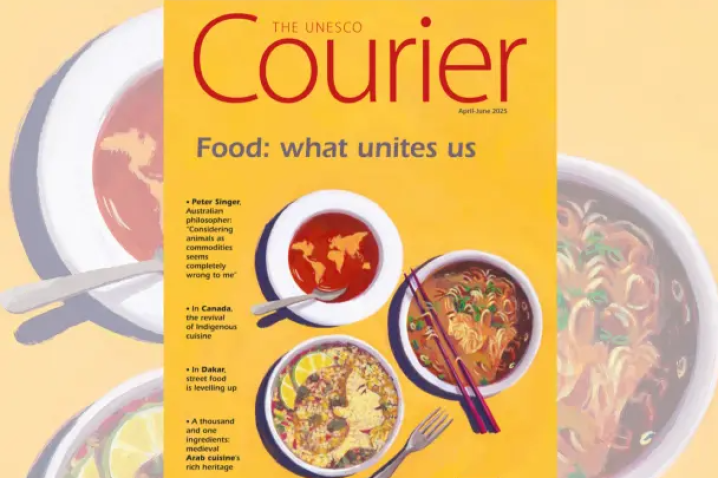What is Sustainable Gastronomy?
Gastronomy is sometimes called the art of food. It can also refer to a style of cooking from a particular region. In other words, gastronomy often refers to local food and cuisine. Sustainability is the idea that something (e.g. agriculture, fishing or even preparation of food) is done in a way that is not wasteful of our natural resources and can be continued into the future without being detrimental to our environment or health.
Sustainable gastronomy, therefore, means cuisine that takes into account where the ingredients are from, how the food is grown and how it gets to our markets and eventually to our plates.
Source: FAO ![]()
How the UN System Works for a Sustainable Gastronomy
The United Nations Educational, Scientific and Cultural Organization (UNESCO) and the Food and Agriculture Organization (FAO) and the UN General Assembly work to facilitate the observance of Sustainable Gastronomy Day, in collaboration with Member States, UN organizations and other international and regional bodies, as well as civil society, to observe the Day in raising public awareness of its contribution to sustainable development.
Some of UNESCO’s initiatives include:
- Launching the UNESCO Creative Cities Network
 , created in 2004 to share best practices and develop partnerships in 7 creative fields. As of 2025, 56 cities have been designated Creative Cities of Gastronomy;
, created in 2004 to share best practices and develop partnerships in 7 creative fields. As of 2025, 56 cities have been designated Creative Cities of Gastronomy; - Promoting clean energy for local restaurants (use gas and electricity instead of coal, use natural gas rather than carbon);
- Raising public awareness of sustainable gastronomy through TV food channels and gastronomy shows and through food cultural exhibitions, intended for the food industry and farmers.
As for the FAO, the Organization promotes green culture diets that are not only healthy, but sustainable and suggests that countries that already have dietary guidelines should begin to consider a process of incorporating sustainability into them.
From the FAO
- Living and breathing gastronomic traditions in Serbia
- Are you up to the millet dish challenge?
- Freekeh: The ancient dish firing up rural women’s futures in Lebanon
- Fish on our mind, fish on your plate : FAO’s cookbook helps you know, cook and eat fish
- Local food for healthy locals
- We are what we eat: Transforming diets to transform agri-food systems
- A spicy agricultural heritage: there’s more to wasabi than meets the eye
- A cup of tea… or cha?
- For the love of pulses!
- Celebrating nutrition with these five FAO cookbooks
- No one likes labels… unless it comes to food
Focusing on the role of sustainable gastronomy
The UN General Assembly adopted on 21 December 2016 its resolution A/RES/71/246 and designated 18 June as an international observance, Sustainable Gastronomy Day.
The decision acknowledges gastronomy as a cultural expression related to the natural and cultural diversity of the world. In the aftermath of the COVID-19 pandemic, and as the Earth is facing a triple planetary crisis of climate disruption, nature loss and pollution, sustainable gastronomy - celebrating seasonal ingredients and producers, preserving wildlife as well as our culinary traditions - is today more relevant than ever.
Learn more
Celebrate Sustainable Gastronomy Day with FAO
Resources
United Nations
- SDG Goal 2: End hunger, achieve food security and improved nutrition and promote sustainable agriculture
- Global Issues: Food
- Food Systems Summit 2021
FAO
- Sustainable Gastronomy Day – Official website

- Food loss and waste reduction

- Sustainable food and agriculture

- Family Farming Knowledge Platform

UNESCO
- Creative Cities Network

- List of Intangible Cultural Heritage and Register of good safeguarding practices





